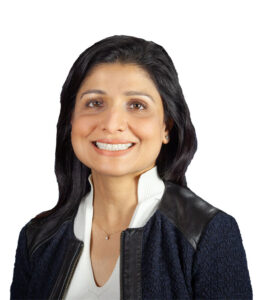Gastroenterologist at Oneida Heath discusses colorectal cancer and a new endoscopic ultrasound procedure — EUS — that allows the doctor to see detailed image of the lining of the digestive tract and the surrounding organs
By Chris Motola

Q: What falls under the spectrum of gastroenterology?
A: Gastroenterology works with diagnosis and treatment of different digestive illnesses: esophagus, stomach, large intestines, small intestines, pancreatic diseases. So it’s medical treatment, plus endoscopic procedures that help to diagnose and screen for these diseases.
Q: What is EUS?
A: EUS is endoscopic ultrasound. It is considered an advanced endoscopic procedure. It gives a detailed image of the lining of the digestive tract. But, it can allow us to see surrounding organs in addition to the stomach and small intestines. So we can also visualize the gall bladder, the pancreas, the liver and bile ducts. It helps us to diagnose growths and abnormalities that might have been picked up on a CT scan or X-ray so we can get detailed visualizations of those conditions and then take a biopsy if needed.
Q: What are some of the benefits of using this procedure?
A: The benefit of EUS is it gives us a better image through the lining of the stomach and the small intestine and also allows us to access them if we need to take a biopsy. From the patient’s perspective, if they have chronic abdominal pain or if they’re losing weight without any explanation, then it can allow us to investigate the symptoms. And it allows us to see cancers in surrounding structures and see the extent and spread of those cancers.
Q: Colorectal cancer seems like it’s become a major public health focus. Who is generally vulnerable to colorectal cancer and why are we taking it as seriously as we are?
A: I think all of us are vulnerable to colorectal cancer. It’s a common disease, unfortunately. Recent data shows there are close to 150,000 new cases of colorectal cancer diagnosed every year in the United States. So it’s still the second leading cause of death of men in the United States and the third leading cause of cancer-related death in women. So it’s a big concern. The death rate from colorectal cancer has been declining since 1990. A lot of that is because of the screening we’ve been doing. We’re detecting it earlier and preventing colon cancer. The risk of colon cancer increases with age. So the recommendation from the American Cancer Society is that screening be done on everyone 45 years old and older. If they have a family history of colon cancer or digestive issues like colitis, they may have to be screened at a younger age.
Q: And this is a type of cancer that’s generally asymptomatic until it’s very advanced, yes?
A: That is correct and a challenging part. For the majority of patients, there are no symptoms for early stage colon cancer. They’re the people we want to make sure we diagnose.
Q: Why are people with conditions like colitis more likely to develop cancer?
A: It’s because of inflammation. Since their colon is inflamed chronically for years, that inflammation increases their risk of colon cancer above that of the general population. The recommendation is that for patients who have had eight years or more of colitis to screen every two years instead of every five or 10 years.
Q: Does this apply to colon irritation more broadly, or is it more specific to colitis?
A: It’s more specific. Not all will increase your chances of getting cancer. It’s very specific. This is specifically inflammatory bowel diseases, which includes colitis and Crohn’s disease. Those are specifically the ones that increase your chances of developing colon cancer.
Q: So something like irritable bowel syndrome (IBS) doesn’t put you at higher risk?
A: Correct. IBS has not been linked with colon cancer.
Q: What kinds of inventions are used if early stage cancer is found?
A: Our goal is early detection. We can usually offer a cure if the cancer is detected at Stage I or Stage II. Patients can undergo surgical procedures to remove the tumor, which is often a cure. That’s compared to if it is detected after it’s spread to the lymph nodes, in which case they’d need other treatments like chemotherapy.
Q: So the prognosis is very good.
A: It’s very good. If we diagnose it in the early stages and the tumors are removed, they’re cured. We’ll always have to keep up with screening to make sure there’s no recurrence, but patients do great at that stage.
Q: Other than screening, what can patients do to reduce their chances of developing colorectal cancers.
A: In general, there are lifestyle and environmental factors that contribute. Smoking is a big risk factor, so is obesity. Over the years we’ve learned that diet plays a big role in colon and pancreatic cancer. We’ve found that you should limit processed food intake, eat more fresh fruit and vegetables. So there’s a lot of diet and lifestyle involved. There was a study I was involved in New York City where we were looking at African Americans and recent African immigrants, the first group had much higher incidences of colon cancer, and a lot of that had to do with exposure to the Western diet.
Q: Is it the fiber that matters so far as diet is concerned? Or something else?
A: It’s fiber. So studies have shown that people who consume a lot of fruits and vegetables, which are high in fiber, do have a reduced risk of colon cancer and polyps.
Q: What got you interested in gastroenterology?
A: I enjoy medicine. I always liked internal medicine, especially endoscopic procedures. They let you screen and prevent cancers and still do treatments. It’s a great mix of procedures and medicine. It’s always evolving and getting more sophisticated as well, which keeps things interesting.
Lifelines
Name: Uzma Abbasi, M.D.
Position: Gastroenterologist at Oneida Heath
Hometown: Lahore, Pakistan
Education: Allama Iqbal Medical College
Affiliations: Oneida Health
Organizations: American College of Gastroenterology, American Society Gastrointestinal Endoscopy, American Gastroenterological Association
Family: Husband, two sons (7 and 5)
Hobbies: Hiking, board games

